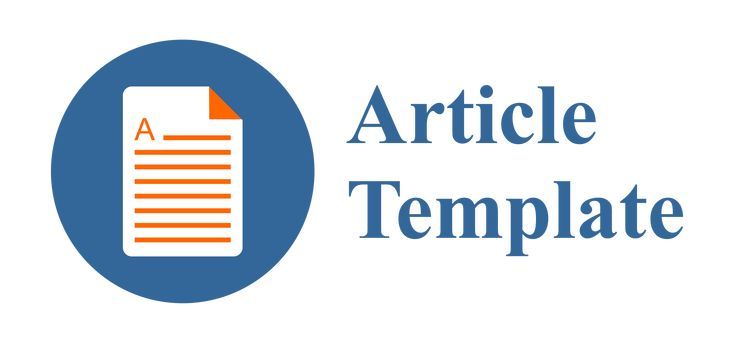Evaluasi Kualitas Kesiapan Belajar Online Mahasiswa Baru Program Studi Manajemen Dakwah IAIN Pontianak
DOI:
https://doi.org/10.29408/edumatic.v5i1.3372Keywords:
Evaluation, New Students, Online Learning ReadinessAbstract
IAIN of Pontianak Dakwah Management Study Program is currently doing online learning. The implementation is surely difficult, especially for the new students. They need to be prepared in following the online learning. This condition is attracting the interest to evaluate the preparation quality. The purpose of this research is to evaluate the preparation quality of online learning the new students in IAIN of Pontianak Dakwah Management Study Program using the quantitative approach. The population of this research is all students from in IAIN of Pontianak Dakwah Management Study Program. The sampling technique used in this research is the total-sampling, where all the populations are used as the sample of research. Data collecting use the instrument for online learning preparation scale. Data analysis is conducted in two stages, where the data analysed in percentage quantitative descriptive and comparison with achievement category criteria. The results of this research show the median value of confidence dimension in using computer or the Internet for learning is 8,77. Median value for independent learning is 17,77. 8,95 are for students’ control dimension in the online-context. The learning motivation dimension in the online-context with 14,41 value, and confidence dimension in communicating online is 10,28 value.
References
Adlya, S. I., Yusuf, A. M., & Effendi, M. (2020). The contribution of self control to students’ discipline. Journal of Counseling and Educational Technology, 3(1), 1–5. https://doi.org/10.32698/0791
Alawamleh, M., Al-Twait, L. M., & Al-Saht, G. R. (2020). The Effect of Online Learning on Communication Between Instructors and Students During Covid-19 Pandemic. Asian Education and Development Studies, (August). https://doi.org/10.1108/AEDS-06-2020-0131
Alhadi, S., & Nanda Eka Saputra, W. (2017). The Relationship between Learning Motivation and Learning Outcome of Junior High School Students in Yogyakarta. Yogyakarta International Conference on Educational Management/Administration and Pedagogy, 66, 138–141. https://doi.org/10.2991/yicemap-17.2017.23
Amri, Z., Uska, M. Z., & Arianti, B. D. D. (2018). Analisis Usability Website Universitas Hamzanwadi terhadap Kepuasan Pengguna dengan Menggunakan User Satisfaction Model. EDUMATIC: Jurnal Pendidikan Informatika, 2(1), 15–23. https://doi.org/10.29408/edumatic.v2i1.842
Argaheni, N. B. (2020). Sistematik Review: Dampak Perkuliahan Daring Saat Pandemi COVID-19 Terhadap Mahasiswa Indonesia. PLACENTUM: Jurnal Ilmiah Kesehatan Dan Aplikasinya, 8(2), 99–108. https://doi.org/10.20961/placentum.v8i2.43008
Avram, E. M. (2015). The Importance of Online Communication in Higher Education. Network Intelligence Studies, 3(05), 15–21.
Bakar, R. (2014). The Affect Of Learning Motivation On Student’s Productive Competencies In Vovational High School, West Sumatera. 4(6), 722–732.
Filgona, J., Sakiyo, J., Gwany, D. M., & Okoronka, A. U. (2020). Motivation in Learning. Asian Journal of Education and Social Studies, 10(4), 16–37. https://doi.org/10.9734/ajess/2020/v10i430273
Gopalan, V., Bakar, J. A. A., & Zulkifli, A. N. (2020). A review of motivation theories, models and instruments in learning environment. Journal of Critical Reviews, 7(6), 554–559. https://doi.org/10.31838/jcr.07.06.100
Hamka. (2015). Penggunaan Internet Sebagai Media Pembelajaran Pada Mahasiswa Iain Palu. HUNAFA: Jurnal Studia Islamika, 12(1), 95–119.
Humaira, S. A., & Hurriyah, I. A. (2018). Students ’ Perspectives Towards Self-Directed Learning Out of Classroom. International Conference on English Language Teaching, 145, 6–11. Surabaya: Atlantis Press.
Hung, M. L., Chou, C., Chen, C. H., & Own, Z. Y. (2010). Learner readiness for online learning: Scale development and student perceptions. Computers and Education, 55(3), 1080–1090. https://doi.org/10.1016/j.compedu.2010.05.004
Judistira, A. A., & Wijaya, H. E. (2017). The Role of Self-Control and Self-Adjustment on Academic Achievement. Advances in Social Science, Education and Humanities Research, 128, 122–125. Indonesia: Atlantis Press.
Kantun, S. (2017). Penelitian Evaluatif Sebagai Salah Satu Model Penelitian Dalam Bidang Pendidikan. Majalah Ilmiah Dinamika, 37(1), 15.
Kareva, V. (2017). The Influence of Classroom Communication on Student Commitment to the University. 7(26), 90–104.
Kholisho, Y. N., & Marfuatun, M. (2020). Daya Serap Pelaksanaan Mata Kuliah Kependidikan di Tengah Pandemi Covid-19. Edumatic: Jurnal Pendidikan Informatika, 4(1), 131–140.
Mayende, G., Prinz, A., & Isabwe, G. M. N. (2017). Improving Communication in Online Learning Systems. International Conference on Computer Supported Education, 1, 300–307. https://doi.org/10.5220/0006311103000307
McKinney, C., Brown, K., & Malkin, M. L. (2018). Parenting Style, Discipline, and Parental Psychopathology: Gender Dyadic Interactions in Emerging Adults. Journal of Child and Family Studies, 27(1), 290–301. https://doi.org/10.1007/s10826-017-0865-7
Oishi, I. R. V. (2020). Pentingnya Belajar Mandiri bagi Peserta Didik di Perguruan Tinggi. IKRA-ITH Humaniora, 4(2), 50–55.
Redondo, R. E., & Martin, J. L. O. (2015). Motivation: The Road to Successful Learning. Profile, 17(2), 125–136.
Sadikin, A., & Hamidah, A. (2020). Pembelajaran Daring di Tengah Wabah Covid-19. Biodik, 6(2), 109–119. https://doi.org/10.22437/bio.v6i2.9759
Santoso, A. M., Amin, M., Sumitro, S. B., & Lukiati, B. (2017). Learning Motivation of Students During the Implementation of Lecturing Based in Silico Approach. International Journal of Research and Review, 4(9), 6–9.
Surahman, E. (2019). Integrated Mobile Learning System (Imoles) Sebagai Upaya Mewujudkan Masyarakat Pebelajar Unggul Era Digital. JINOTEP (Jurnal Inovasi Dan Teknologi Pembelajaran) Kajian Dan Riset Dalam Teknologi Pembelajaran, 5(2), 50–56. https://doi.org/10.17977/um031v5i22019p050
Syafitri, R. (2017). Meningkatkan Tanggung Jawab Belajar Melalui Strategi Giving Questions and Getting Answers Pada Siswa. Jurnal Penelitian Dan Pengembangan Pendidikan, 1(2), 57–63. https://doi.org/10.23887/jppp.v1i2.12623
Triningtyas, D. A. (2016). Studi Kasus Tentang Rasa Percaya Diri, Faktor Penyebabnya Dan Upaya Memperbaiki Dengan Menggunakan Konseling Individual. Counsellia: Jurnal Bimbingan Dan Konseling, 3(1). https://doi.org/10.25273/counsellia.v3i1.239
Uska, M. Z., & Wirasasmita, R. H. (2018). Analisis Teknologi Smartphone dalam Mendukung Kegiatan Akademis di Universitas Hamzanwadi Menggunakan Technology Acceptance Model. Edumatic: Jurnal Pendidikan Informatika, 2(2), 51–60.
Widiyono, A. (2020). Efektifitas Perkuliahan Daring (Online) pada Mahasiswa PGSD di Saat Pandemi Covid 19. Jurnal Pendidikan, 8(2), 169–177. https://doi.org/10.36232/pendidikan.v8i2.458
Downloads
Published
How to Cite
Issue
Section
License
All articles in this journal are the sole responsibility of the authors. Edumatic: Jurnal Pendidikan Informatika can be accessed free of charge, in accordance with the Creative Commons license used.

This work is licensed under a Lisensi a Creative Commons Attribution-ShareAlike 4.0 International License.




